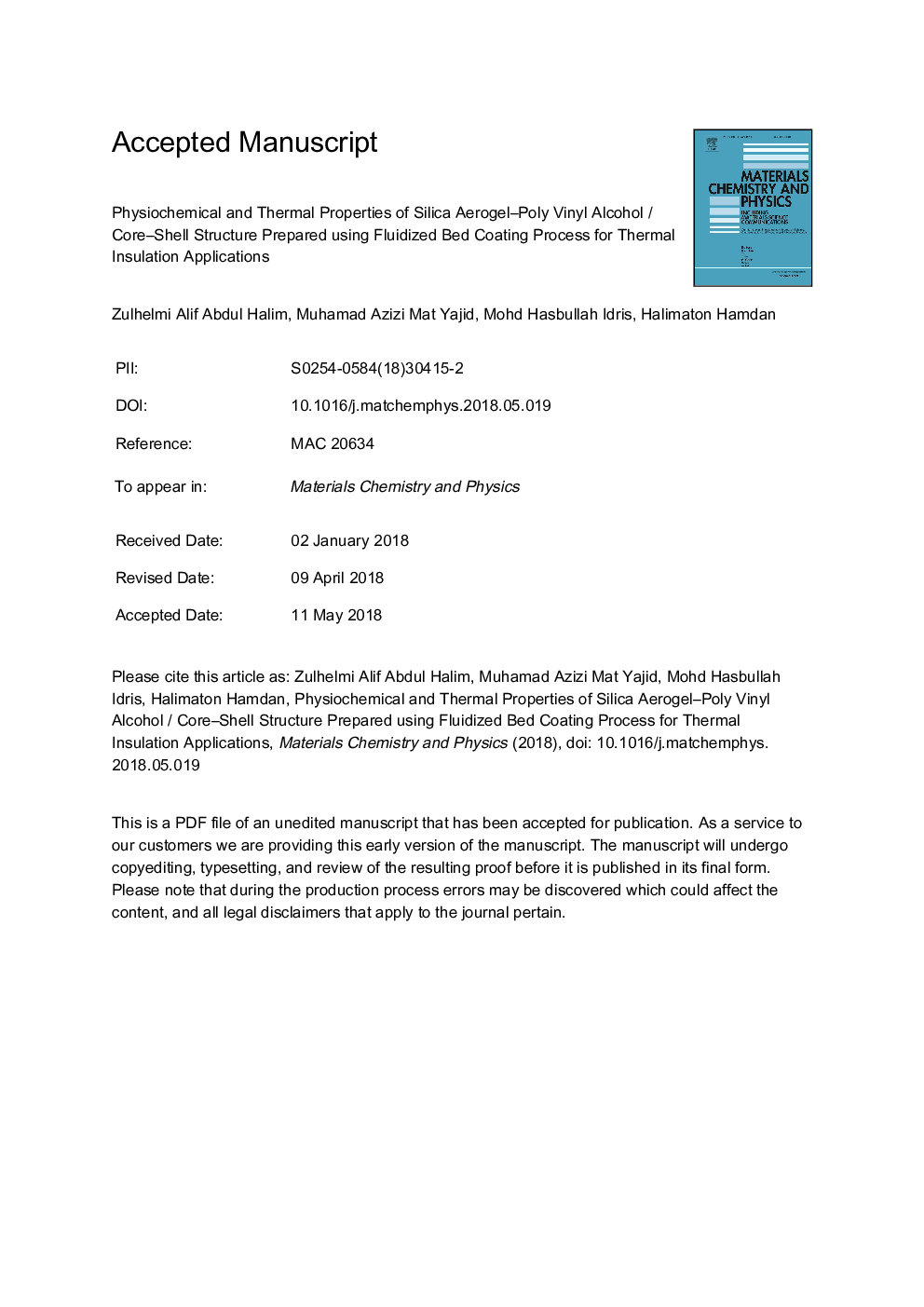| Article ID | Journal | Published Year | Pages | File Type |
|---|---|---|---|---|
| 7921394 | Materials Chemistry and Physics | 2018 | 24 Pages |
Abstract
This work proposes a process for the fabrication of a silica aerogel (SA)-polyvinyl alcohol (PVA) core-shell structure using the fluidized bed method. First, nearly spherical hydrophobic SA particles with a diameter between 0.5â¯mm and 3.0â¯mm were prepared from rice husk ash via a sodium silicate route and ambient-pressure drying. Subsequently, a specific batch size of the SA particles was suspended in a heated air stream and sprayed with aqueous PVA using a bottom nozzle via the fluidized bed process. Coating of an individual SA particle is possible for large particle sizes and hydrophobization of the SA surface prevents penetration of PVA into its pores. The core-shell structured material showed a combination of high thermal insulation and good mechanical stability, rendering it suitable for use as filler in polymer resin, paints, and coatings. The core-shell structured material had an average density of 0.09â¯gâ¯cmâ3 with well-preserved SA pores. The average shell volume fraction was 2.5%; the shell thickness varied below 50â¯Î¼m, and was mostly approximately 20â¯Â±â¯5â¯Î¼m. Thermal analysis using transient plane hot-disk method and thermogravimetric analysis showed that the SA-PVA/core-shell structure exhibited lower thermal conductivity (0.035â¯W/mK) and higher thermal stability than uncoated SA.
Related Topics
Physical Sciences and Engineering
Materials Science
Electronic, Optical and Magnetic Materials
Authors
Zulhelmi Alif Abdul Halim, Muhamad Azizi Mat Yajid, Mohd Hasbullah Idris, Halimaton Hamdan,
